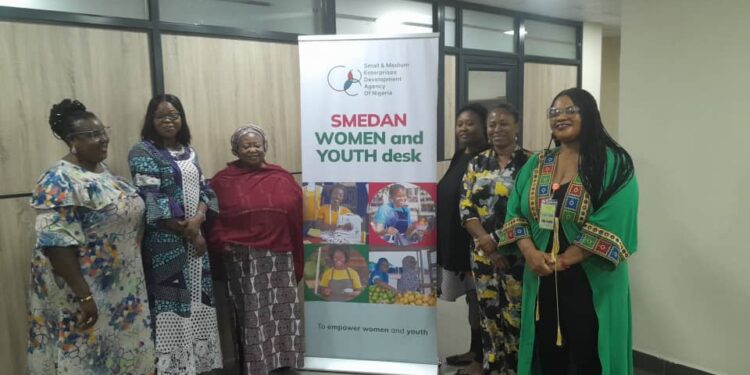AMINA SAMUEL, KADUNA
The Nigeria Association of Women Journalists is set to collaborate with the Small and Medium Enterprises Development Association of Nigeria (SMEDAN) to enhance women’s participation in commerce and industry.
Aisha Ibrahim K Bura, NAWOJ National President, emphasized the need for more women to venture into the dynamic world of commerce and industry to support their careers.
She stated that capacity building for members of the Nigeria Association of Women Journalists is a key focus of her administration.
“NAWOJ is a professional association of women in the media, encompassing print, electronic, and new media. As most of our members are employed by the government and will eventually retire from active public practice, relying solely on pensions may not adequately meet the responsibilities women continue to bear in their families. It is, therefore, crucial for them to have alternative means of earning extra income, ensuring retirement is not an overwhelming and daunting time in their lives,” the National Chairperson emphasized.
She praised the organization’s efforts in advocating for the economic empowerment of women, aiming to guide the emergence of female captains of industry in Nigeria. She requested technical and other support from the organization to enhance the capacity of women journalists and further develop existing skills.
“NAWOJ has formations in the South-South, South-East, South-West, North-East, North-West, and North-Central,” she added, highlighting the contributions of these formations in aiding successive administrations in spreading development initiatives across various zones nationwide.
Mrs. Olabimpe Fawale, in response, reiterated that SMEDAN’s primary responsibility is to ensure the growth of nano, small, and medium-scale enterprises in Nigeria.
She commended NAWOJ’s national leadership for the initiative to empower its members, acknowledging the tangible and realistic plan to address challenges that often accompany retirement.
Fawale emphasized SMEDAN’s role in providing technical support, especially for retirees who lack the knowledge needed to start their own ventures. She expressed support for structuring the initiative across different zones to prepare members for an uncertain future.
The delegation accompanying the National Chairperson during the visit included Wasilah Ladan, National Secretary; Chizoba Ogbeche, Zonal Vice Chairperson, Zone D; Grace Ijeoma Umeh, Chief of Staff to the President; and Esther Ado, member, FCT Chapter of NAWOJ.











